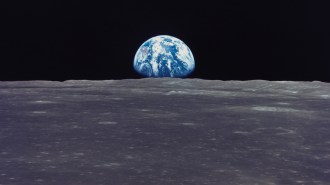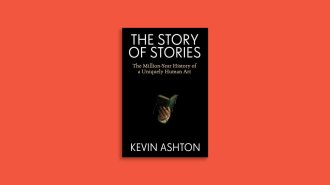Scientists find the intrigue in Earth’s dullest times
By Eva Emerson
- More than 2 years ago
 Earth’s history is not so long that scientists can easily ignore large bits of it, much less a billion years — nearly a quarter of the planet’s existence. But geologists have traditionally found little of interest in the time from 1.8 billion to 800 million years ago, dubbed the “boring billion.” More dynamic periods have stolen scientists’ attention, leaving this era relatively unexplored.
Earth’s history is not so long that scientists can easily ignore large bits of it, much less a billion years — nearly a quarter of the planet’s existence. But geologists have traditionally found little of interest in the time from 1.8 billion to 800 million years ago, dubbed the “boring billion.” More dynamic periods have stolen scientists’ attention, leaving this era relatively unexplored.
Now, new methods, coupled with new attitudes, are revising ideas about the boring billion, Thomas Sumner reports. And that’s transforming the uninteresting into the intriguing, leading scientists to ponder why the climate was so unusually stable during this period, for example, and what chain of events later jazzed things up. Scientists now say oxygen levels might have been even lower than has been thought. And evolution, presumed to have stalled given the dearth of oxygen during the boring billion, actually might have been quietly percolating the whole time.
Many biologists now argue that the boring billion was an important time in the evolution of early eukaryotes, the intricate life-forms that gave rise to the first animals. That’s because, just about 260 million years after the era’s end, the Cambrian explosion produced a riot of complex animals.
Recasting the boring billion as a thrill ride for life underscores how sometimes our own assumptions limit our knowledge. Looking at something carefully, with better tools or perhaps a fresh perspective, can reveal processes once hidden. We just can’t see it until we look in the right way.
Laura Sanders’ story, for instance, will make you think of blood in an entirely new light. Instead of just responding to brain cells’ demands for fuel, blood itself appears to sometimes command those cells. Blood can be seen as a key information-carrying medium in the body, ferrying chemical data and instructions throughout the circulatory system. Blood and brain are locked in a surprisingly dynamic give-and-take. It’s yet another example of the complexity that awaits whenever we can look past our old beliefs about how things work.







